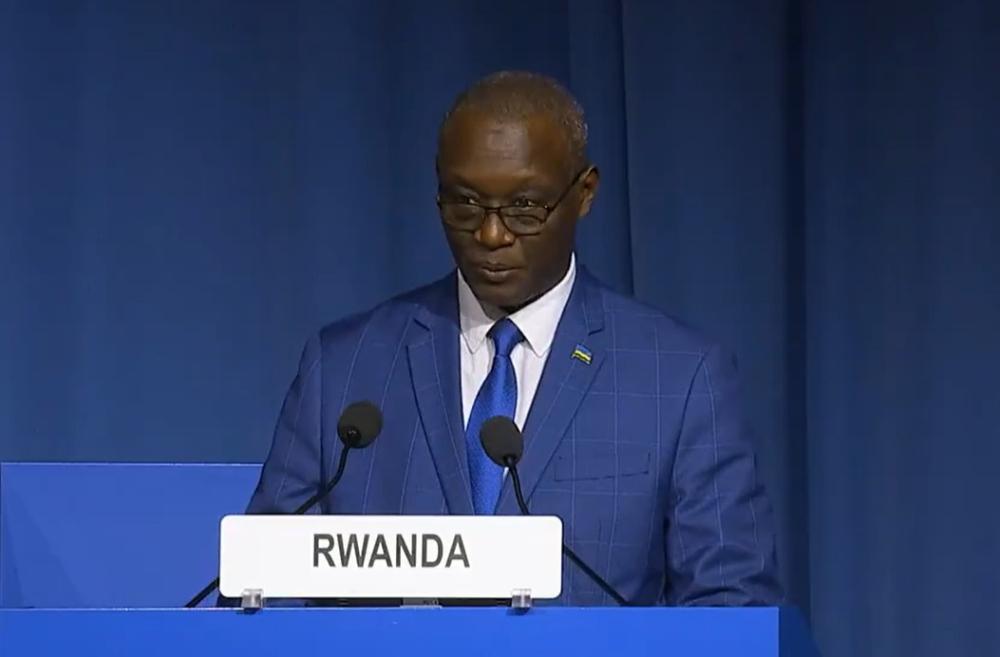Africa-Press – Rwanda. MOSCOW — Rwanda is preparing to build its first research reactor, a mini nuclear power plant, as part of a project expected to go far beyond energy production, officials said.
The initiative aims to address the country’s pressing challenges by supporting industrial growth, advancing agriculture, and training the next generation of scientists, according to Fidele Ndahayo, the Chief Executive Officer of the Rwanda Atomic Energy Board (RAEB).
Ndahayo spoke about Rwanda’s nuclear ambitions at the World Atomic Week in Moscow, Russia, on Friday, September 26, during a panel discussion titled “Neutron flux symphony as a score of progress: how a research reactor ‘sounds’ in daily life.”
“A sustainable nuclear power program is not possible if you don’t have a research nuclear program,” Ndahayo said at the largest global gathering for the nuclear sector, which began on September 25.
“It will help us train the human resources we need and support research that can boost development in many other socio-economic sectors beyond energy.”
Rwanda, in partnership with Rosatom, the Russian state nuclear energy corporation, conducted a feasibility study to establish the Center of Nuclear Science and Technology (CNST) in Kigali, identifying which sectors would benefit most from nuclear applications.
A 2019 agreement with Russia outlines a 10 MW pool-type reactor with six multi-purpose sections, including a research reactor and lab complex, nuclear medicine center, multipurpose irradiation center, and radiobiology lab and greenhouse.
“Nuclear-based techniques are increasingly precise and are now being used in medicine to improve treatment for certain diseases. Rwanda also wants to develop its nuclear system by integrating these techniques,” Ndahayo said.
“That’s our first step forward, alongside the Ministry of Health and public institutions leading the research.”
He explained that the government is also prioritising the training of young Rwandans, with the University of Rwanda launching a nuclear science and technology program this year to prepare students for the future nuclear initiatives.
“Farmers are left without options when rains fail or come at the wrong time. Our solution is to develop irrigation systems so we don’t rely solely on rain,” he said.
“This project will help us map water resources accurately, especially underground water, which is crucial for irrigation.”
However, Ndahayo pointed out that the project must protect the environment and leave it in a better condition than before.
“This includes introducing biotech solutions, such as precise nitrogen use in agriculture, to reduce pollution and protect our water systems,” Ndahayo explained.
He added that government agencies, research institutions, and environmental bodies are all collaborating to ensure the project addresses Rwanda’s needs.
For More News And Analysis About Rwanda Follow Africa-Press






